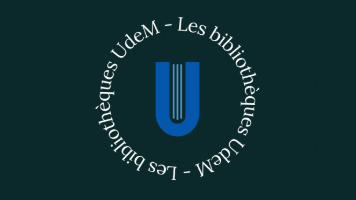A rapid scoping review on transnational families and midwifery care : experiences, challenges and strategies for improving health and wellbeing during pregnancy, childbirth and postpartum
Université de Montréal - Faculté des sciences infirmières – Travaux et publications
Abstract
Background: Transnational families, i.e., those whose family members are geographically distributed and who maintain a sense of collectivity across national borders, is a growing phenomenon. The perinatal period (pregnancy, childbirth and postpartum) is a particularly sensitive phase of life, confronting families with a range of questions and uncertainties; for transnational families, living separated, adds a layer of complexity. The midwifery model of care emphasizes collaboration, anti-oppressive approaches and personalized care, not only for the childbearing person, but also within the family and the community; however, not much is known about how midwives consider and address transnational families’ identities, relationships and practices during the delivery of care. The health and care experiences of transnational families during the perinatal period, and their perspectives on the role of midwives in relation to their transnational family dynamic, has also received little attention. Objectives: This knowledge synthesis addressed the following questions: 1) How do transnational families experience pregnancy, childbirth and postpartum, including care? 2) What are the experiences of midwives and what role do they play (or should they play) when caring for transnational families? Methods: We conducted a rapid scoping review. We searched for literature that provided information about the experiences, practices and perceptions of midwives caring for transnational families in high income countries and/or information about transnational families’ experiences during pregnancy, birth and postpartum in high income countries, including their challenges and expectations of midwifery/perinatal healthcare. We searched seven bibliographic databases and selected websites of midwifery associations worldwide. We considered research, other article types (discussion/theoretical papers) and grey literature, published between 2014 and 2024, and available in English, French, Spanish or German. Data, including literature characteristics, and excerpts of text from the articles, as well as participants’ quotes, that were relevant to the research questions, were extracted and managed in Covidence. To respond to the research objectives, we employed a narrative synthesis approach and organized the findings under themes. Results: The searches yielded a total of 123 articles which describe international migrant women/families’ perinatal experiences and/or the experiences of midwives providing care to migrants; only four articles had an explicit focus on transnational families’ and experiences during the perinatal period, while none directly addressed the topic of transnational families and midwifery care. We identified seven themes: “family separation”; “transnational connections and support”; “being a part of two cultures”; “challenging experiences with midwifery care”; “positive experiences and expectations of midwives”; “midwives’ challenges with transnational families”; and “midwifery care and addressing challenges and promoting health and well-being”.
Membres et équipe SHERPA

Lisa Merry
Professeure, Faculté des sciences infirmières, Université de Montréal (UdeM)

Christine Gervais
Directrice scientifique, Institut universitaire SHERPA; Professeure au département des sciences infirmières, Université du Québec en Outaouais (UQO)

